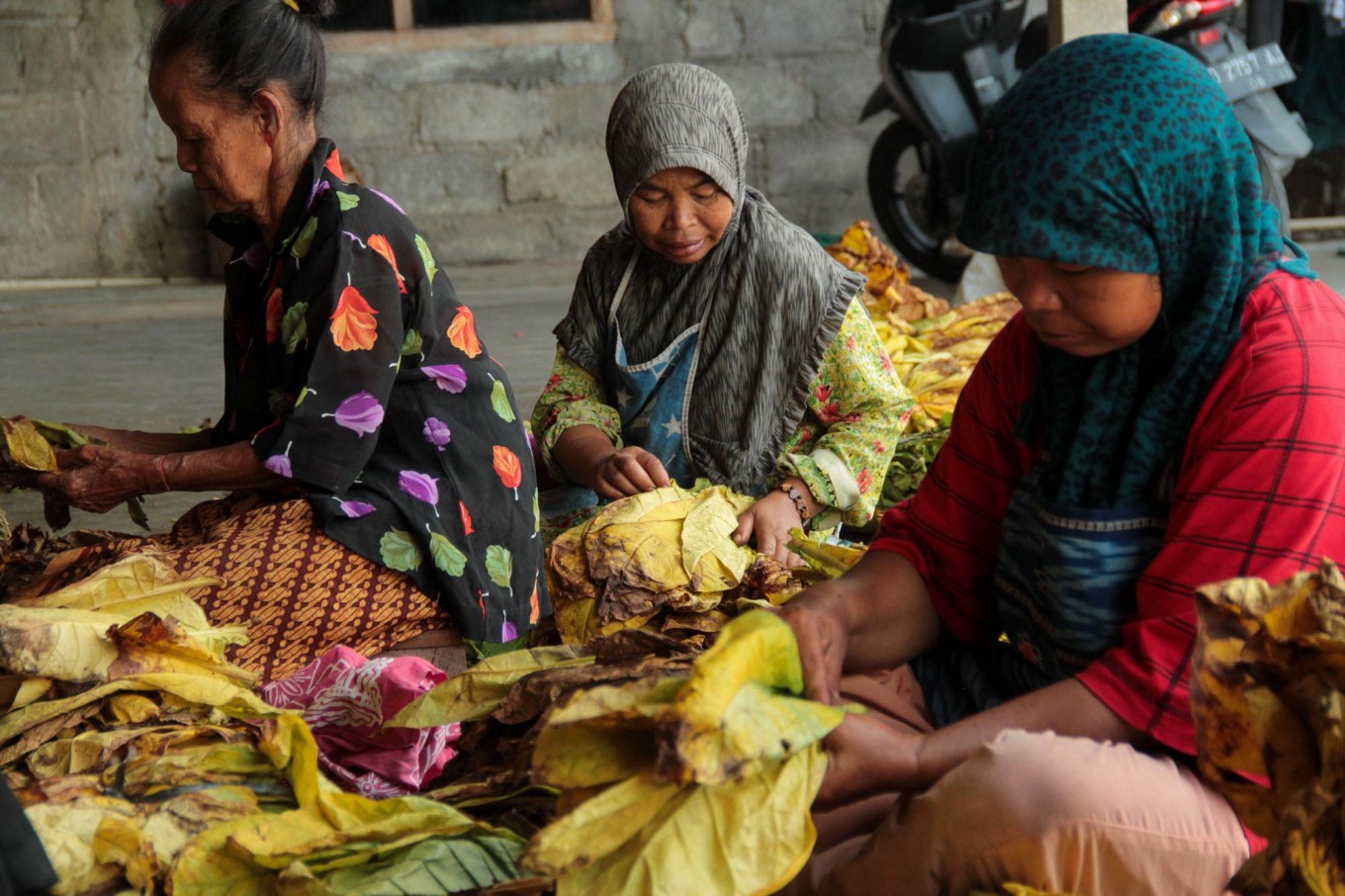Popular Reads
Top Results
Can't find what you're looking for?
View all search resultsPopular Reads
Top Results
Can't find what you're looking for?
View all search resultsRI women earn 23% less than their male peers
Women earned on average Rp 2.45 million (US$166.39) per month in February, marking an annual increase of 5 percent, according to survey data from Statistics Indonesia (BPS).
Change text size
Gift Premium Articles
to Anyone
W
omen in Indonesia earn less money on average per month than men as the gender pay gap stood at nearly 23 percent in February, official data show, as female workers face undervalued work and inflexible working conditions.
Women earned on average Rp 2.45 million (US$166.39) per month in February, marking an annual increase of 5 percent, according to survey data from Statistics Indonesia (BPS). Men earned higher on average at Rp 3.18 million per month, an increase of 4.3 percent over the same period.
The inequality has slightly narrowed as the gender pay gap, the difference between the average wages of men and those of women as a percentage of men’s wages, was slightly higher at 23.44 percent in the same month last year. However, the wage gap has not improved very much from the level seen in February 2010 at 23.64 percent.
The gender pay gap was estimated at 16 percent at the global level, according to a news release from the International Labor Organization (ILO) and the United Nations Entity for Gender Equality and the Empowerment of Women (UN Women).
“Unless we address the systemic inequalities that put women in low paid, undervalued work and inflexible working conditions that limit their opportunities, we will not be able to close the gender pay gap,” Jamshed Kazi, UN Women Indonesia representative and liaison to ASEAN, was quoted in the news release as saying on Thursday.
[GRAPH: MIND THE GAP]
The wage disparity exacerbates the uneven impact of the COVID-19 pandemic on women, since most of them work in hard-hit industries such as accommodation, food and beverages, sales and manufacturing.
Women have also been disproportionately affected as most of them work in the informal and underpaid sectors. Less than half of them work as professionals, according to an estimate from the Finance Ministry.
While other factors like educational background may play a role, most studies consider discrimination the stronger factor driving the wage inequality between men and women, Diahhadi Setyonaluri, an economist at the Demographic Institute at the University of Indonesia (UI), has said.
Men had a better chance of climbing the career ladder in part because there were “implicit problems” embedded in job promotion, Diahhadi added.
Women, for example, tended to turn down promotion offers that would move them from their current city when their children were already attending school and their husband worked there, she said.
“Imagine if there was zero gender wage gap, there would be additional income,” Diahhadi told The Jakarta Post in a phone interview on Friday.
“The easiest way to see it is to consider its impact on the national income or economic growth. With no wage inequality, our economic growth may increase by several percentage points,” she added.
[TABLE: UNIVERSITY GRADUATES STILL FACE THE GAP]
The ILO Indonesia stated that “education alone does not close the gender pay gap.” Among university graduates, women earned 31.9 percent less than their male counterparts, according to BPS data.
Aviliani, an economist at the Institute for Development of Economics and Finance (Indef), said Friday the wage gap was smaller for higher managerial positions, for which the wage was based more heavily on skills.
Women in high managerial positions earn on average Rp 5.9 million every month and men Rp 7.23 million, according to BPS data. The difference is a wage gap of 18.31 percent, slightly below the overall wage gap.
“Women in lower positions tend to think about their family first regardless of the pay they receive, while men tend to negotiate,” Aviliani told the Post in a phone interview.
Manpower Minister Ida Fauziyah said Indonesia still considered wage equality between men and women important since the country ratified in 1958 the ILO Convention on Equal Remuneration.
“Given the gender gap in our labor market today, my ministry, together with all of our social partners and international organizations, continues to reinforce our joint actions against gender-based discrimination at work. It is time for women and men to be equally appreciated by their talents, work results and competence, not by their gender,” Ida was quoted in the news release as saying.
Closing the gender wage gap can be achieved by emphasizing the important role trade unions can play, according to Elly Silaban, the president of the Confederation of All Indonesian Labor Unions (KSBSI), and Yorrys Raweyai, the general chairman of the All Indonesian Workers Union Confederation (KSPSI).
“We need to increase the representation of women in decision-making roles and the involvement of women in wage-setting mechanisms and negotiation. Women should be able to represent and speak for themselves,” Elly was quoted in the news release as saying.
Embed code
GRAPH
TABLE










